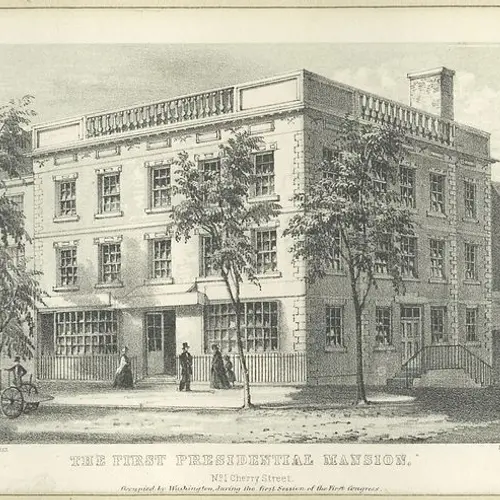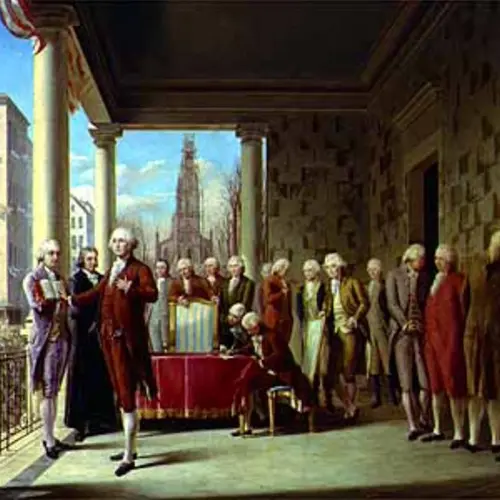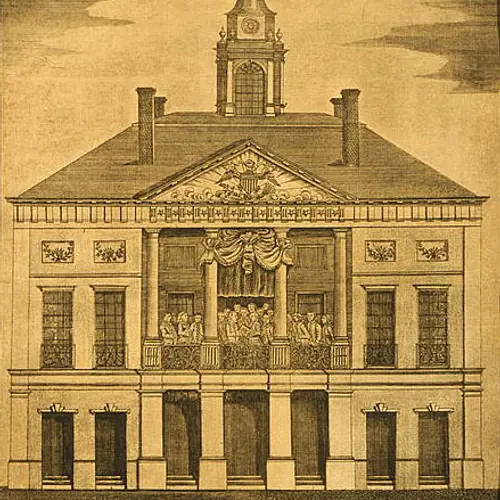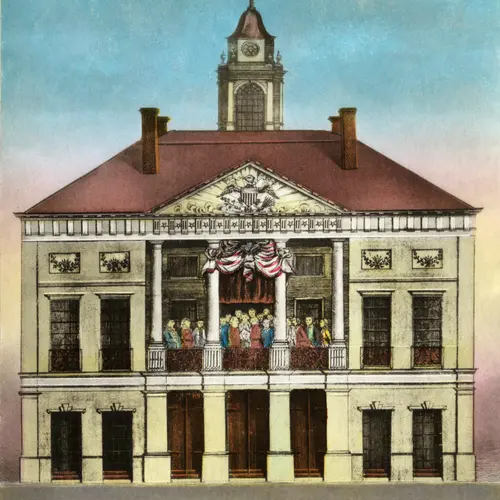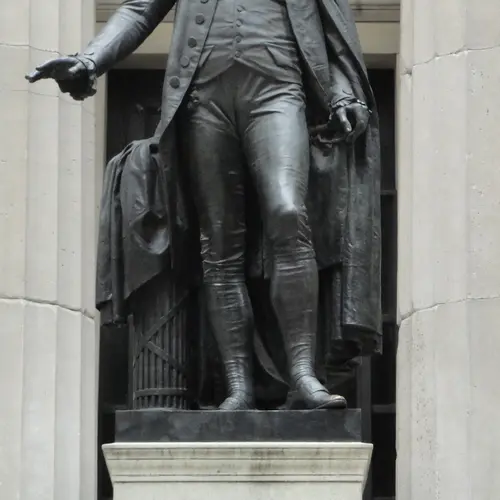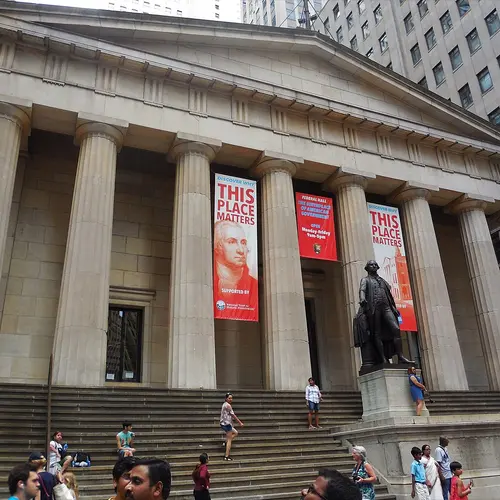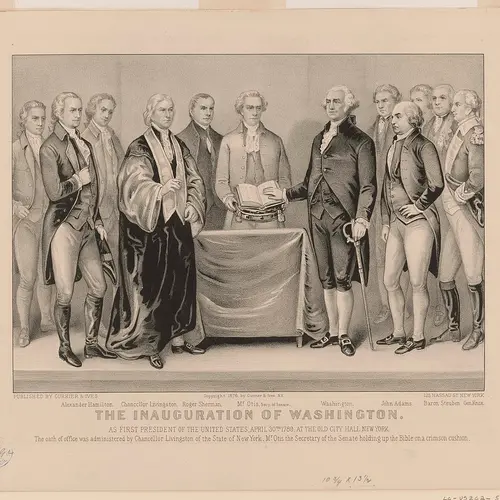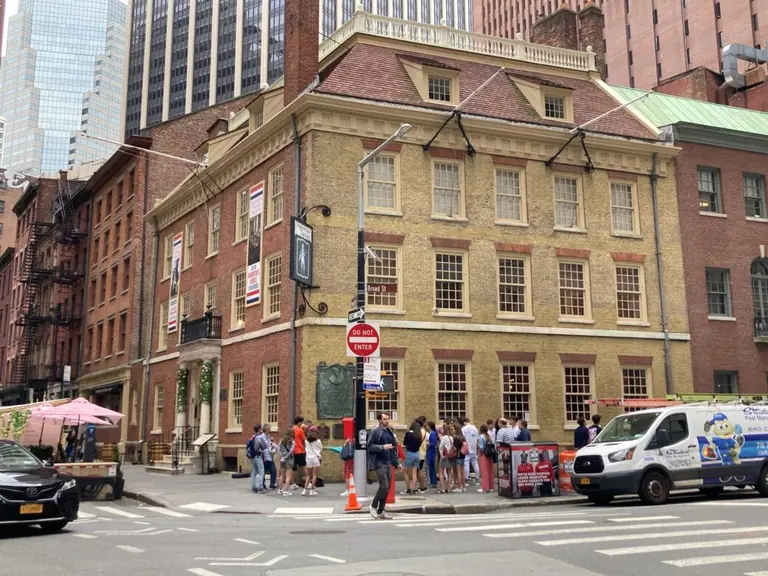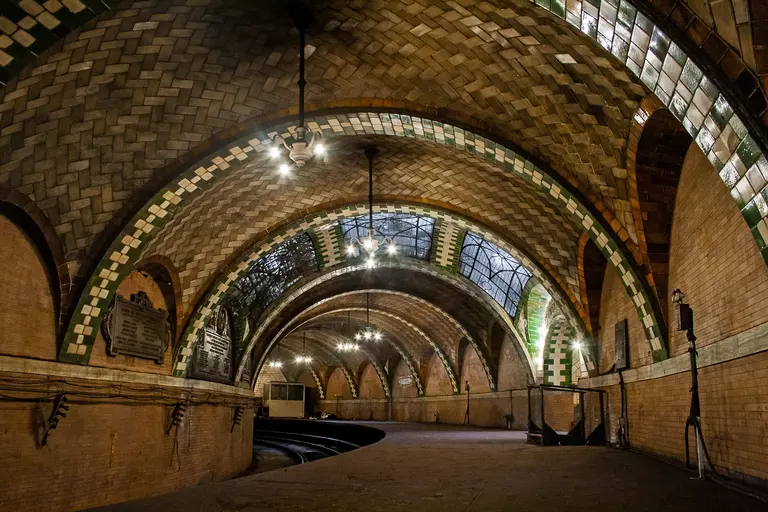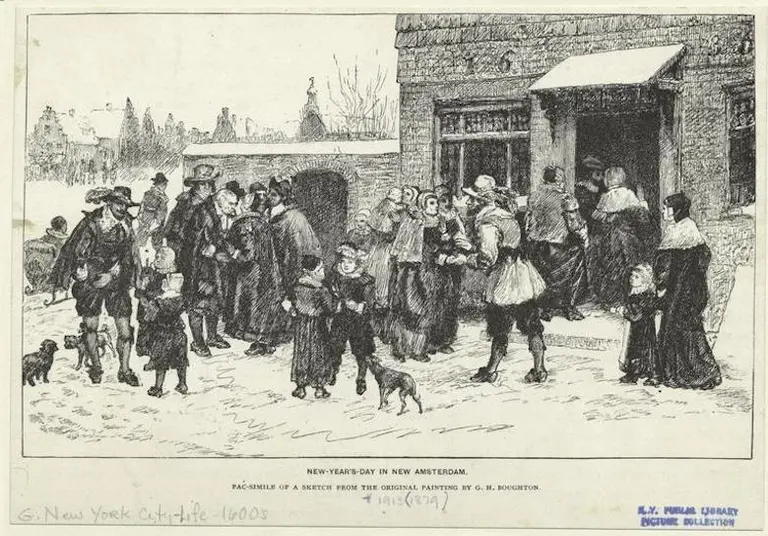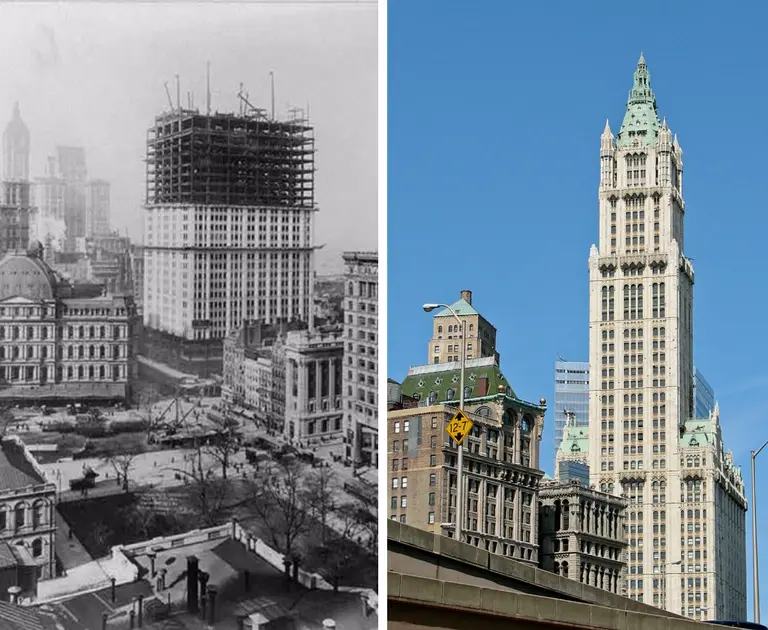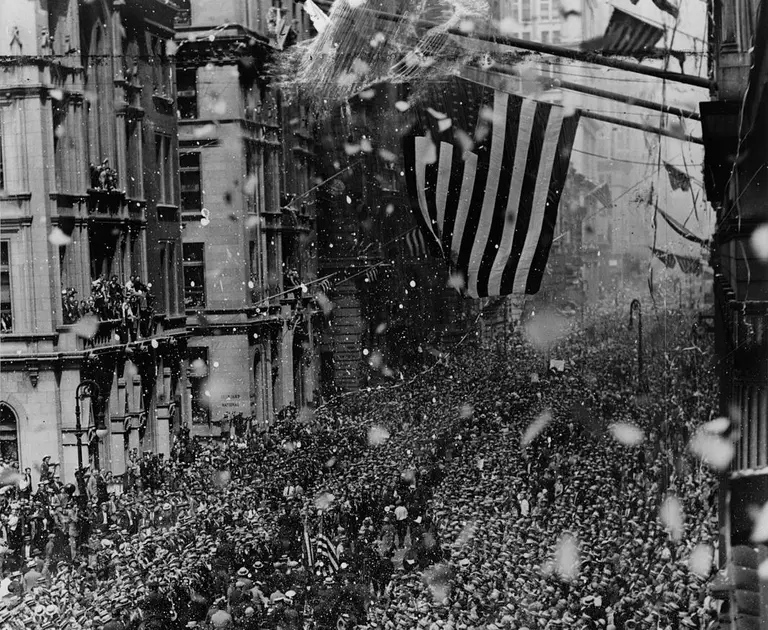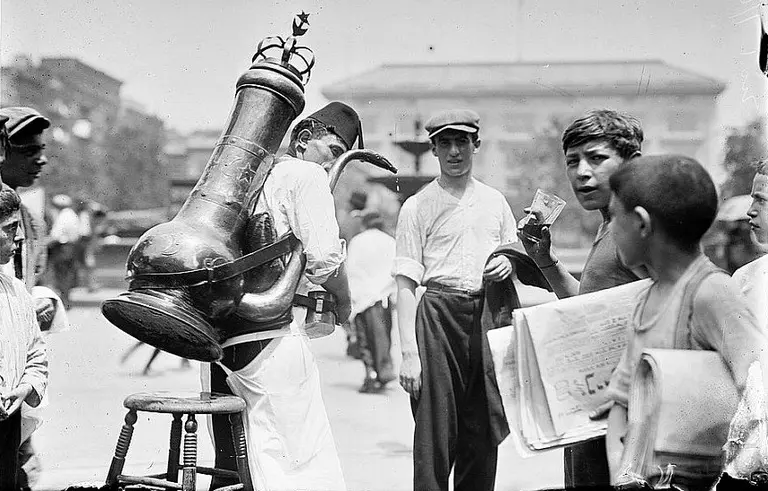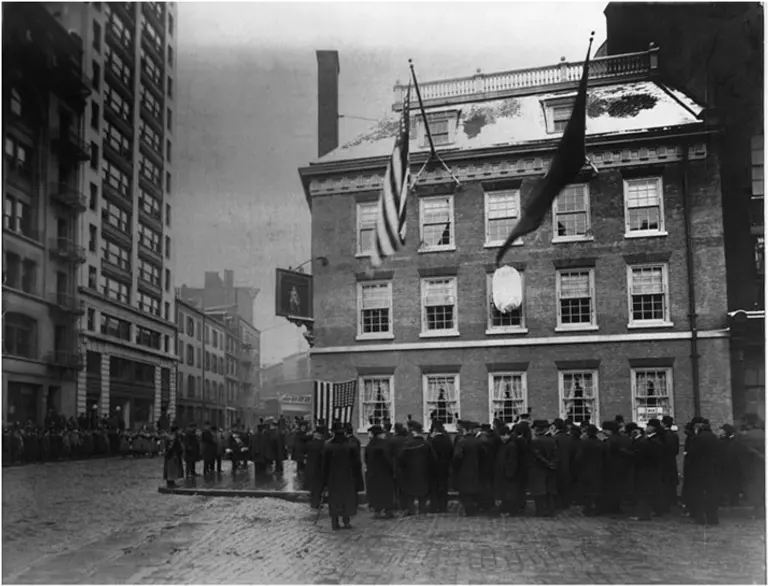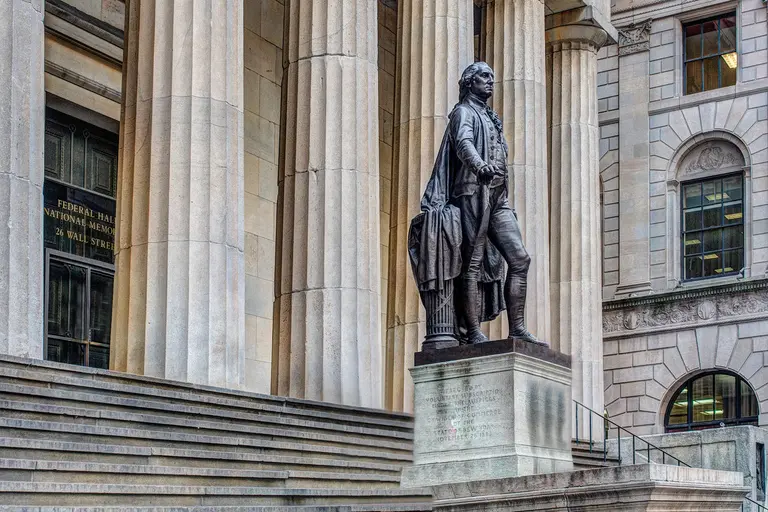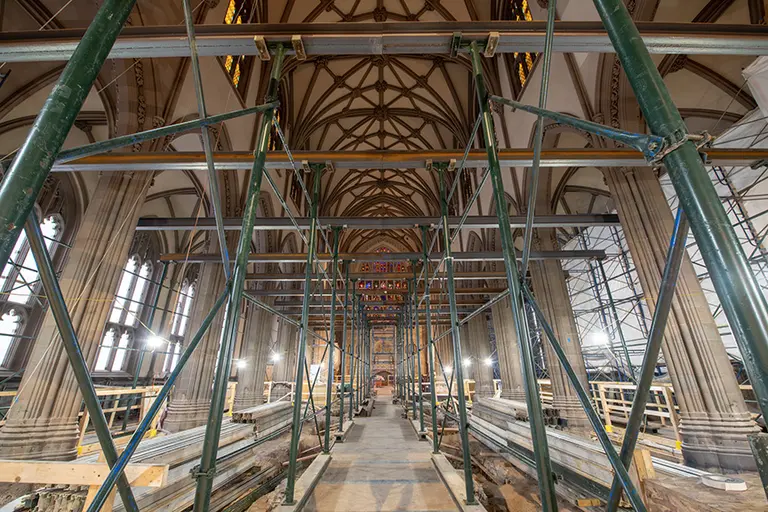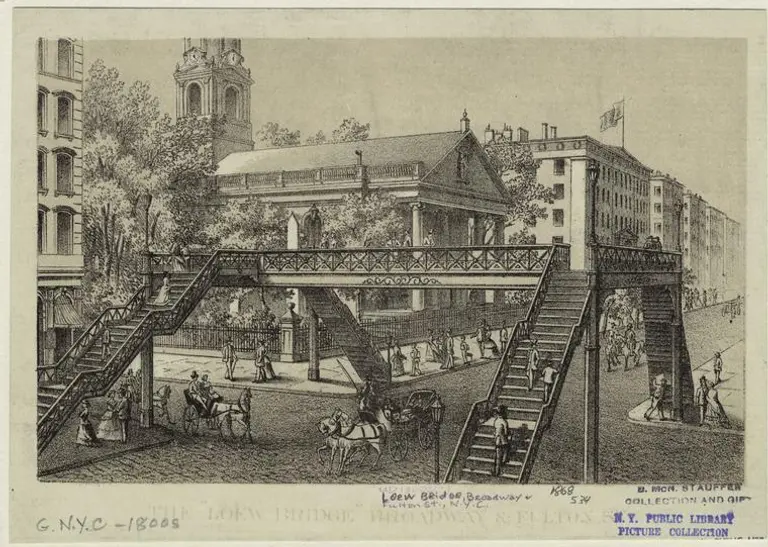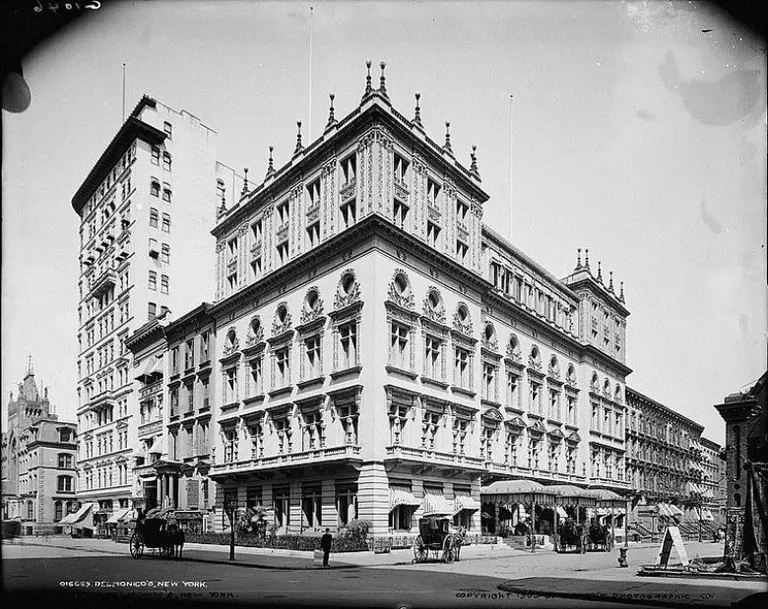The first presidential inauguration was held in New York City in 1789
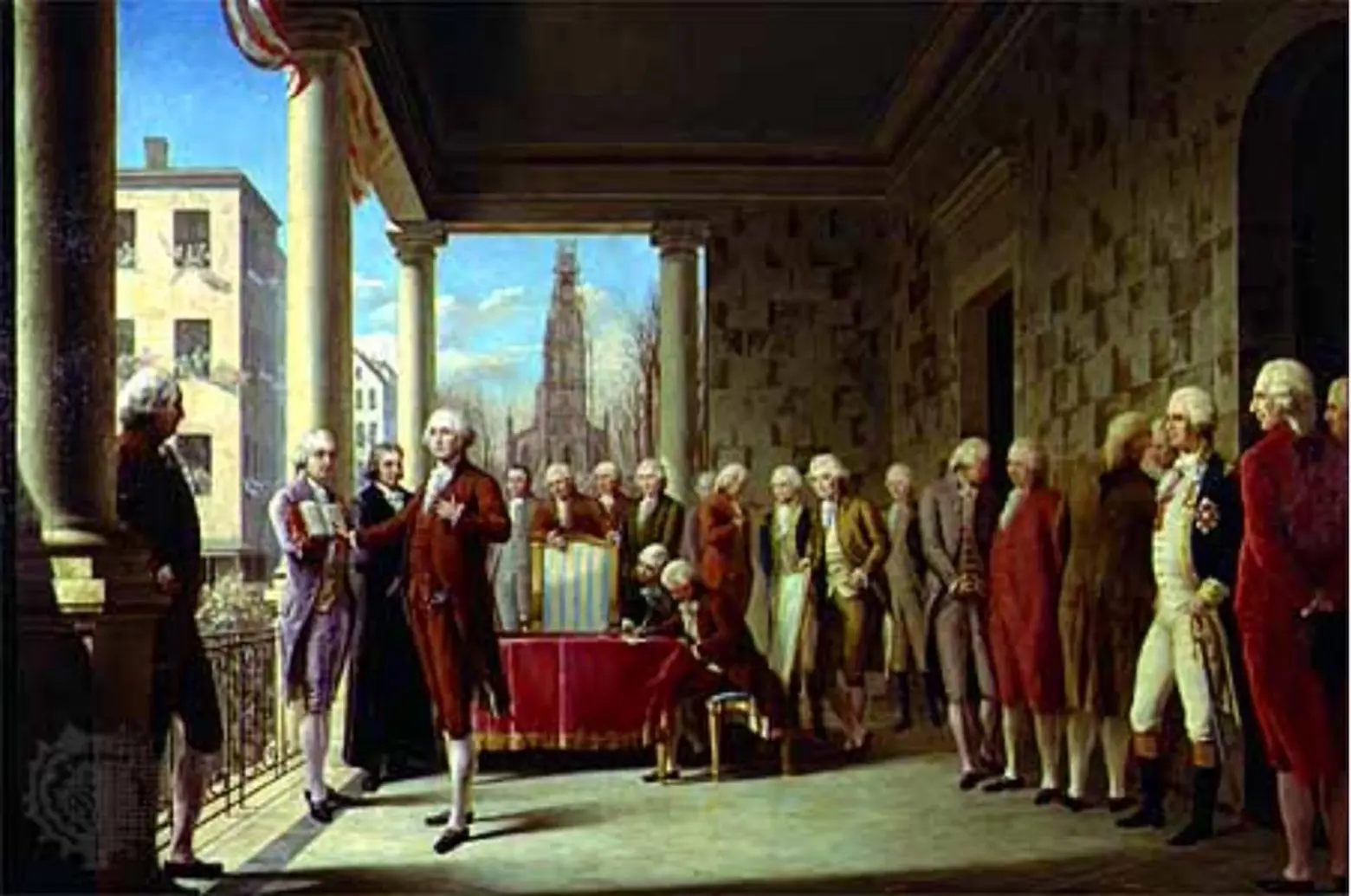
Photo via Wikimedia Commons
One of the nation’s most significant Inauguration Days has finally come, and while we’re all looking forward, we also thought it was pertinent to take a look back. On Thursday, April 30, 1789, the first United States Congress met, and the first president was sworn in (the presidential term had already started on March 4 of that year, but logistical delays had kept the votes from being counted or certified). With a quorum finally in place, George Washington took the oath of office as the first president of the United States, alongside Vice President John Adams, on the balcony of the Federal Hall in what is now the Financial District.
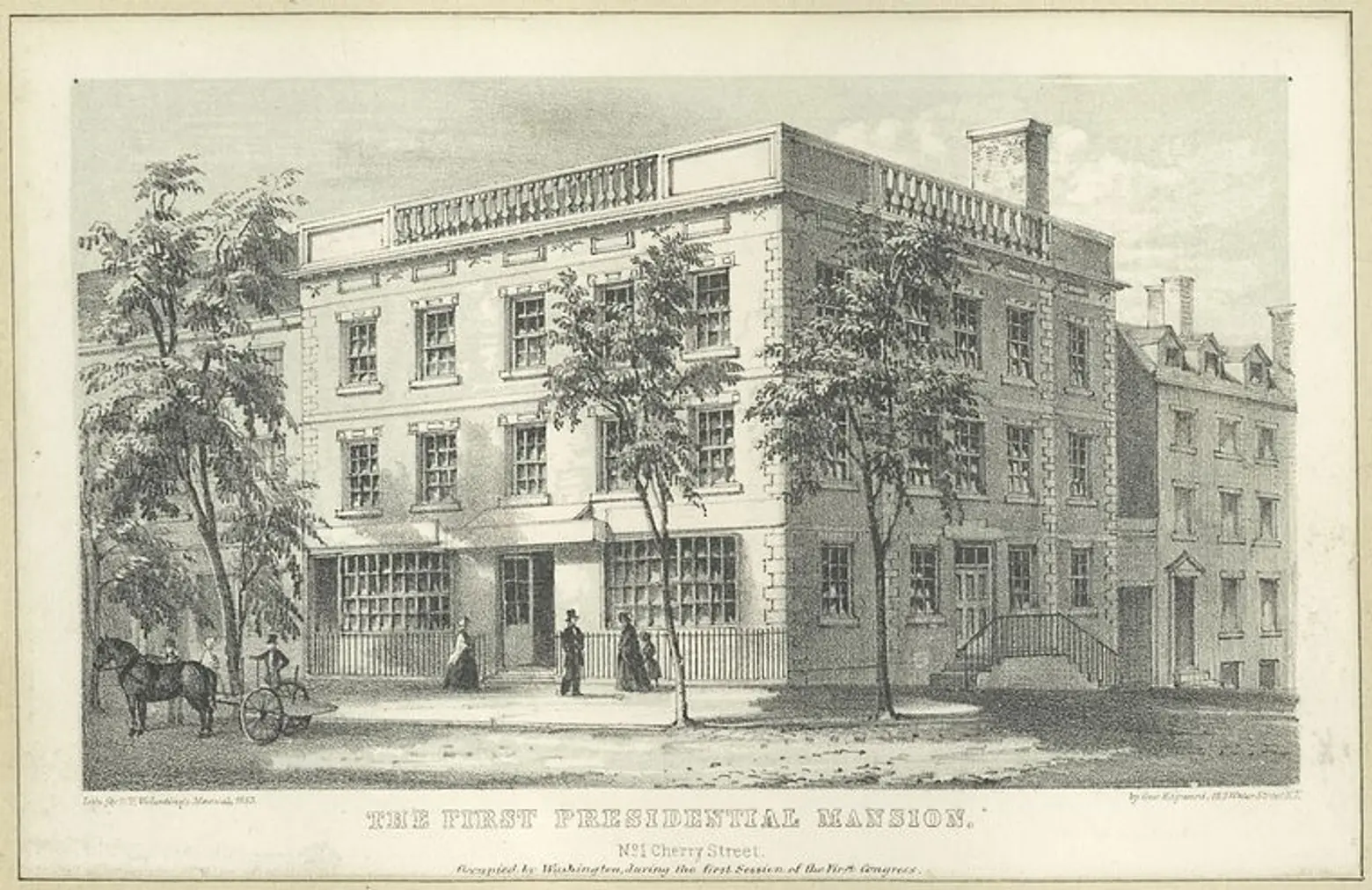
The Miriam and Ira D. Wallach Division of Art, Prints and Photographs: Print Collection, The New York Public Library. (1810 – 1890). The first presidential mansion no. 1 Cherry Stree
George Washington started traveling from Mount Vernon to New York City on April 14th, stopping at cities along the way where he was met by cheering crowds. He arrived on April 23rd when he was greeted by New York Governor George Clinton and then proceeded to the presidential mansion at 1 Cherry Street (it was demolished in 1856).
At sunrise on April 30th, inauguration day began with a military salute at Fort George. At 9:00am, church bells throughout the city rang for 30 minutes. The tradition of a procession to the Capitol also began on this day, when George Washington in his carriage, along with military units and other dignitaries, made their way from the presidential mansion to Federal Hall at noon.
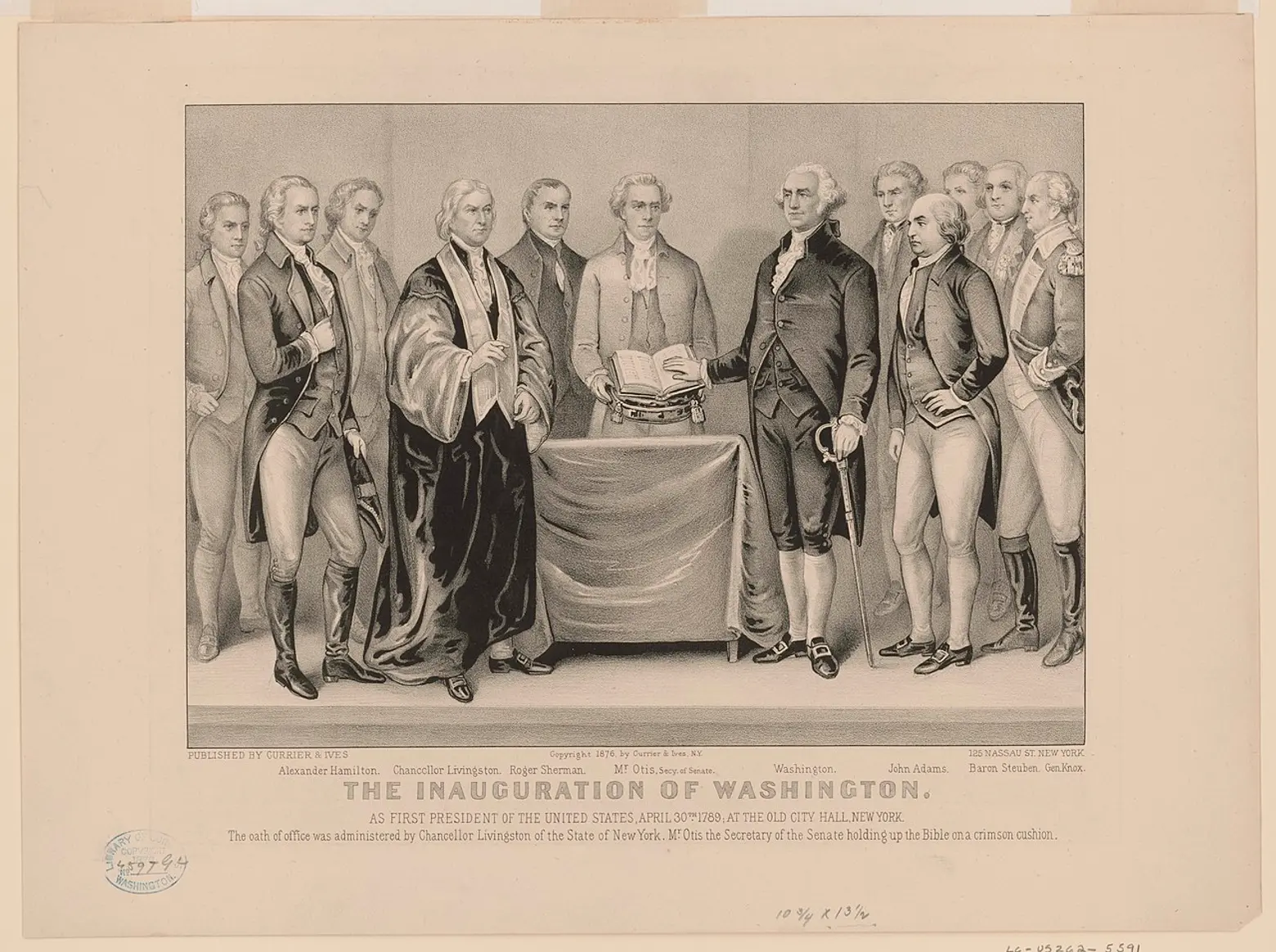
George Washington being sworn in. Image from Library of Congress via Wikimedia Commons.
The ceremony began at 2:00pm, and the presidential oath of office that we have heard every inauguration since–“I do solemnly swear that I will faithfully execute the Office of President of the United States, and will to the best of my ability, preserve, protect, and defend the Constitution of the United States”–was administered by Chancellor of New York Robert Livingston from the second-floor balcony outside the Senate Chamber. Since George Washington was a mason, he used a 1767 copy of the Altar Bible of St. John’s Masonic Lodge, No. 1 to be sworn in. (In later years, Presidents Harding, Eisenhower, Carter, and H.W. Bush used this same bible.)
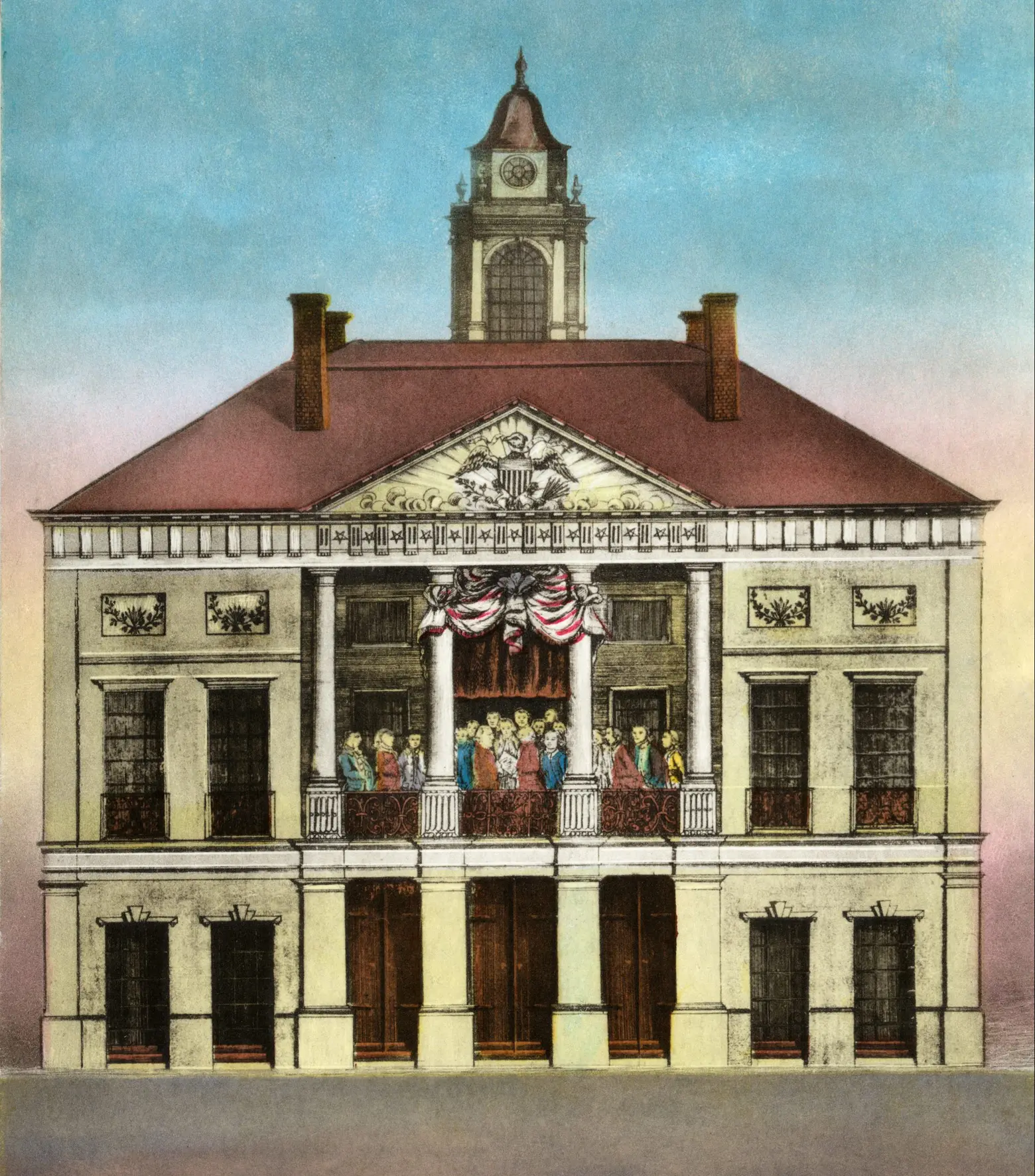
Federal Hall on April 30, 1789. Image from the Library of Congress via Wikimedia Commons
At the time, New York was the nation’s temporary capital. About 10,000 people attended the ceremony, for which George Washington donned an American-made dark brown suit with white silk stockings and silver shoe buckles, accessorizing with a steel-hilted sword and dark red overcoat. After the oath office, Livingston shouted, “Long Live George Washington, President of the United States!,” which was met with a 13-gun salute and cheers from the crowd. That afternoon, he attended a service at St. Paul’s Chapel.
This was followed by George Washington’s inauguration speech that started with, “Among the vicissitudes incident to life, no event could have filled me with greater anxieties than that of which the notification was transmitted by your order, and received on the fourteenth day of the present month…”
Later, on May 7th, George Washington attended the first inaugural ball at the federal government’s temporary headquarters in a building on Broadway near Wall Street. Apparently, he liked to dance the minuet. Since his wife was sick and at Mount Vernon, he dined alone later in the evening at the presidential mansion at 1 Cherry Street (it was demolished in 1856).
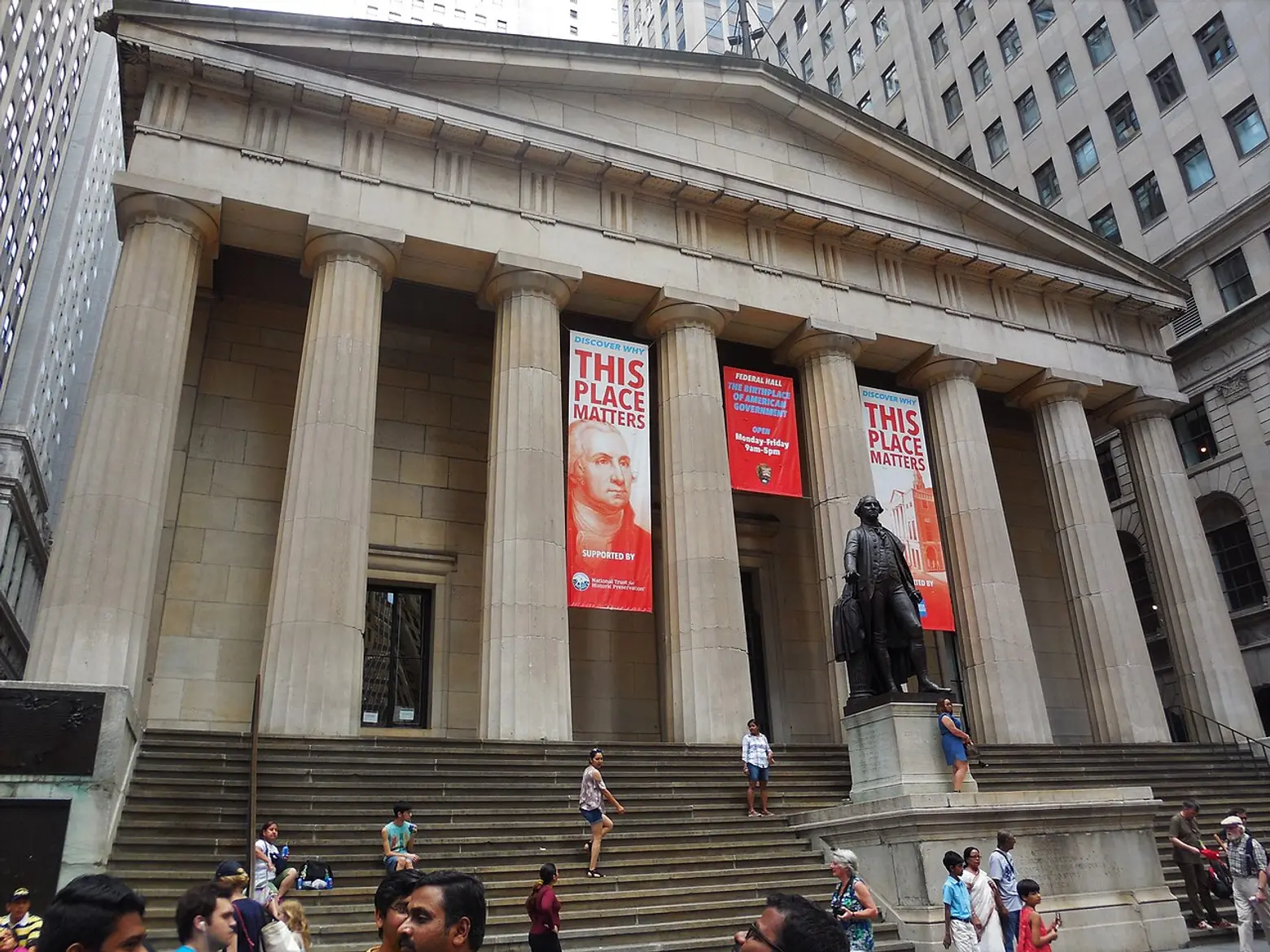
The current Federal Hall built in 1829. Photo by GoginkLobabi via Wikimedia Commons
In addition to being the location of the country’s first Congress, Federal Hall was also home to the first Supreme Court and Executive Branch offices. In 1790, the nation’s capital was moved to Philadelphia, and Federal Hall became the seat of New York City government. This building, which was designed by Pierre Charles L’Enfant (who later designed the plan for Washington D.C.) was demolished in 1812 when the current City Hall building was constructed. In 1829, a grand new structure, the U.S. Custom House for the Port of New York, was built on the empty site. It later served as one of six United States Sub-Treasury locations.
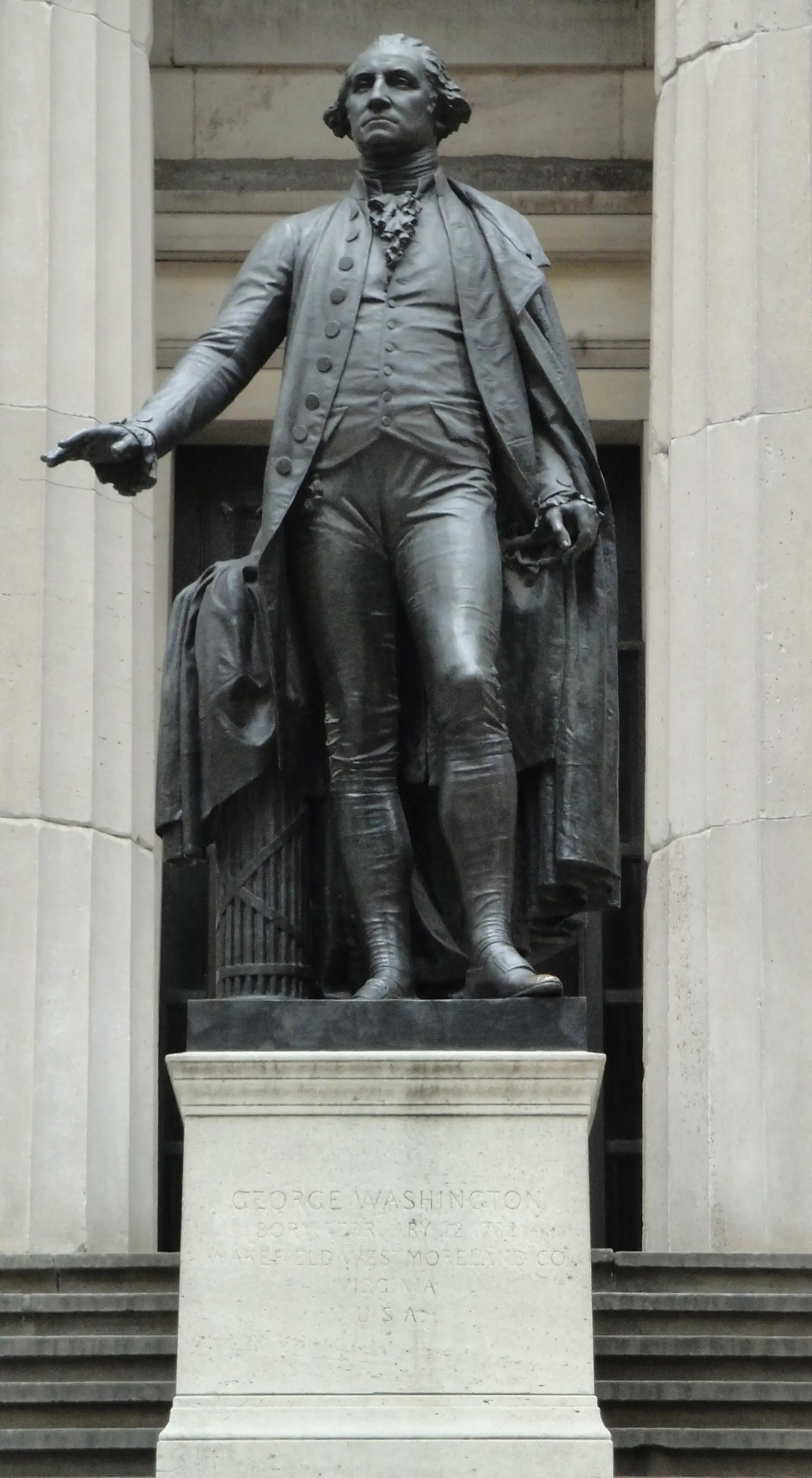
John Quincy Adams Ward’s statue of George Washington at Federal Hall. Photo from Smithsonian Art Inventory Catalog via Wikimedia Commons.
In 1939, the Custom House became Federal Hall Memorial National Historic Site, run by the National Park Service. Standing outside the building is the 1882 bronze statue of George Washington by sculptor John Quincy Adams Ward; it was created to be the exact height at which George Washington stood when he took the first oath of office at the site.
Though Federal Hall remains closed due to Covid, the NPS normally runs daily tours of the building that “serves as a museum and memorial to our first President and the beginnings of the United States of America.” Here, you can see that 18th-century bible that George Washington placed his hand on, as well as pieces of the original building (like the balony behind which Washington stood) and exhibits about this day and early presidential history.
RELATED:
